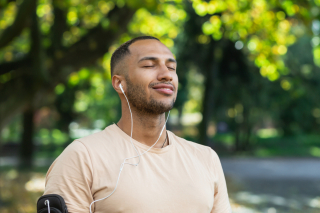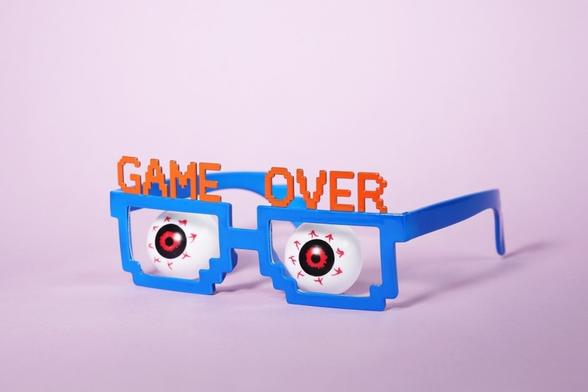#guteNachrichten
#guteNachrichten
#gutenachrichten am #Dienstag Nachmittag
„Weniger #Müll: #Plastiktütenverbot wirkt
Daten von Müllsammelaktionen in den #USA zeigen, dass Plastiktütenverbote zu deutlich weniger Müll führen. Eine amerikanische Studie hat die Daten jetzt ausgewertet.“
#plastikmüll
Quelle
https://www.ardaudiothek.de/episode/urn:ard:publication:b59859cae0607939/

Podcast: Weniger Müll: Plastiktütenverbot wirkt
Daten von Müllsammelaktionen in den USA zeigen, dass Plastiktütenverbote zu deutlich weniger Müll führen. Eine amerikanische Studie hat die Daten jetzt ausgewertet. Autor: Robin Schäfer Quellen: Plastic bag bans and fees reduce harmful bag litter on shorelines: https://www.science.org/doi/10.1126/science.adp9274
Im Rahmen meiner Good-News-Woche möchte ich euch auch tolle Projekte vorstellen.
Aula, ein von @afelia initiiertes Projekt für Schulen. Kinder und Jugendliche erlenen und erfahren dabei ganz direkt und in der Praxis demokratische Prozesse, Selbstwirksamkeit, politische Kompetenzen und übernehmen Verantwortung für sich und ihr Umfeld.
Unterstützenswert, finde ich. 👍
Eine neue Studie findet Hinweise darauf, dass sich Gehirn und Körper beim Musikhören mit dieser synchronisieren und quasi verschmelzen.
Aus dieser Erkenntnis heraus ergeben sich möglicherweise unter anderem ergänzende Therapieansätze bei Erkrankungen wie Schlaganfällen, Parkinson und Depressionen. Auch bringt es bessere interkulturelle Einblicke, warum Musik uns trotz Unterschiede und Gewohnheiten weltweit verbindet.
https://www.mcgill.ca/newsroom/channels/news/study-suggests-we-dont-just-hear-music-become-it-365203

Study suggests we don’t just hear music, but ‘become it’
An international study co-authored by McGill psychologist Caroline Palmer suggests our brains and bodies don’t just understand music, they physically resonate with it. These discoveries, based on findings in neuroscience, music, and psychology, support Neural Resonance Theory (NRT). NRT maintains that rather than relying on learned expectations or prediction, musical experiences arise from the brain’s natural oscillations that sync with rhythm, melody and harmony. This resonance shapes our sense of timing, musical pleasure and the instinct to move with the beat. “This theory suggests that music is powerful not just because we hear it, but because our brains and bodies become it,” said Palmer, Professor in the Department of Psychology at McGill and Director of the Sequence Production Lab. “That has big implications for therapy, education and technology.” The study’s publication in Nature Reviews Neuroscience marks the first time the entire NRT is being published in a single paper, she said. The theory suggests that structures like pulse and harmony reflect stable resonant patterns in the brain, shared across people independent of their musical background. According to NRT, how we hear and produce music can be explained by fundamental dynamical principles of human brain mechanisms that apply from the ear all the way to the spinal cord and limb movements. Researchers say potential applications of the theory include: Therapeutic tools for conditions like stroke, Parkinson’s and depression Emotionally intelligent AI that can respond to or generate music more like humans New learning technologies to support rhythm and pitch education Cross-cultural insight into why music connects people around the world The study was led by Edward Large (University of Connecticut) and co-authored by Caroline Palmer. About the study Musical neurodynamics by E. E. Harding, J-C Kim, A. P. Demos, I. R. Roman, P. Tichko, C. Palmer, and E. W. Large was published in Nature Reviews Neuroscience. Learn more about McGill’s Sequence Production Lab: mcgill.ca/spl/ The study was funded in part by a Canada Research Chair and a NSERC Discovery Grant.
Wie angekündigt, wird es diese Woche von mir ausschließlich positive Posts geben und nur positive Nachrichten und Artikel geteilt werden.
Los geht es mit den erfolgreichen Starts zweier europäischer Wettersatelliten, die sowohl die allgemeinen Wettervorhersagen, also auch Extremwettersituationen wie Sturzfluten und Wirbelstürme besser und genauer vorhersagen können.
#guteNachrichten
#guteNachrichten #Stockrosen
#TikTokStar aus Bruggwald51 - Alters- und Pflegeheim in St. Gallen: Bernadette Baumann (86)
#socialmedia #alter
https://www.tiktok.com/@bruggwald51/video/7533284243875646752?is_from_webapp=1&sender_device=pc&web_id=7539441849066178070
Spieleentwickler:innen gründen Betriebsräte:
https://taz.de/So-prekaer-sind-die-Arbeitsbedingungen-in-der-Gaming-Branche/!6103350/
Mehr #GuteNeuigkeiten - Nachrichten, die Mut machen zu Handeln:
https://www.draketo.de/politik/gute-neuigkeiten#nachrichten

